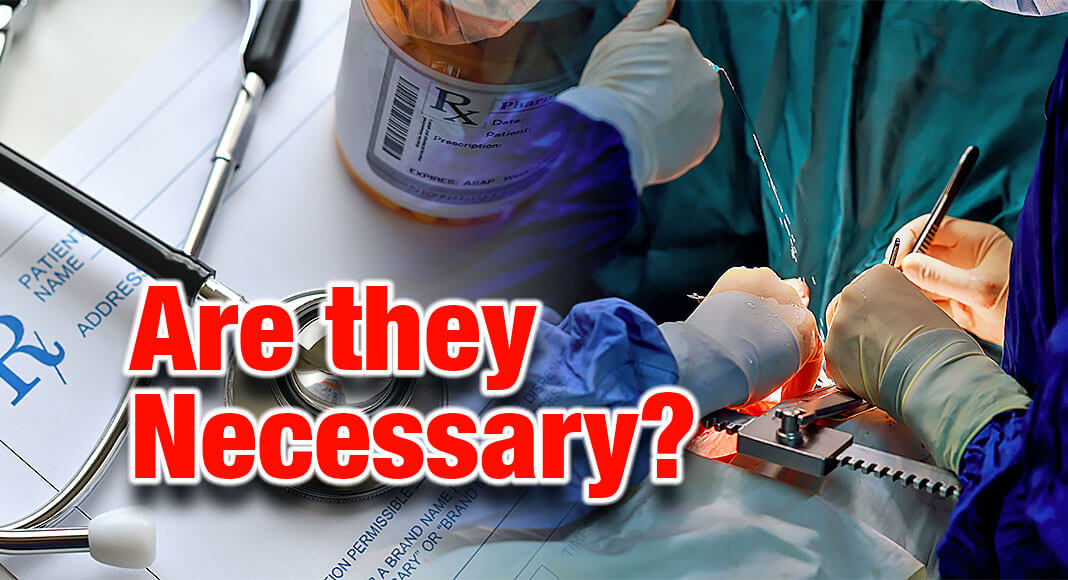
Mega Doctor News
Newswise — CHICAGO, Illinois — Many patients who undergo heart surgery may be able to safely and effectively control postoperative pain without opioids after hospital discharge, according to research published online today in The Annals of Thoracic Surgery.
“In some cases, patients assume that after surgery, especially a big operation like cardiac surgery, that they will need to go home with prescription pain medicine,” said Catherine M. Wagner, MD, from the University of Michigan in Ann Arbor. “This study shows that discharge without opioid pain medicine after cardiac surgery is extremely well tolerated by some patients. In other words, we should not be reflexively prescribing pain medicine to people after surgery just in case they need it.”
Dr. Wagner and colleagues examined data from 2019 for patients who underwent coronary artery bypass grafting (CABG), heart valve surgery, or a combination of those operations via median sternotomy (a vertical incision in the center of the chest) at 10 centers participating in the Michigan Society of Thoracic and Cardiovascular Surgeons Quality Collaborative.
The researchers found that more than one-fourth of patients (547/1,924 or 28%) did not receive an opioid prescription at the time of discharge. Patients who were older, spent more time in the hospital after surgery, or who underwent surgery and were discharged during the last 3 months of the study period (October–December) were more likely than other patients to leave the hospital without an opioid prescription. Conversely, patients with a history of depression, those who were treated with opioids on the day prior to discharge, or patients whose race was non-black and non-white were more likely to receive an opioid prescription at discharge.
Importantly, discharge without an opioid prescription appears to have been well tolerated, as fewer than 2% of patients subsequently required a prescription after their discharge and before their 30-day follow-up appointment.
“This study’s findings should provide patients with reassurance that postoperative pain can be managed with non-opioid pain medications at home,” said Dr. Wagner.
The researchers also found that among the 909 patients who did not take any opioids on the day before discharge, 415 (46%) still received an opioid prescription at discharge.
“One should consider if these opioid prescriptions were truly necessary for patient pain relief,” said Dr. Wagner. “Our study shows that, particularly for patients who did not take any opioids on the day before leaving the hospital, discharge without opioids is safe. I think we need to ensure that only patients who truly need opioids get sent home with a prescription.”
Opioid addiction continues to take a major toll on lives in the US. More than 70% of overdose deaths in 2019—more than 49,000 deaths—involved opioids, according to the US Centers for Disease Control and Prevention (CDC). In 2021, more than 100,000 Americans died of drug overdoses (28.5% increase from the year before); the CDC reports that the main driver of these deaths was opioids.
“For decades, surgeons have unwittingly but substantially contributed to the opioid epidemic,” said Thomas E. MacGillivray, MD, from Houston Methodist in Texas, who was not directly involved in this research. “No one wants any patient to be discharged home after surgery without adequate pain relief. With the best intentions to help relieve pain and alleviate anxiety about pain, discharge practices have frequently erred on the side of prescribing too many rather than too few narcotic pain pills. We have learned that many of the unused, unneeded narcotics end up in the community. This very important study will help surgeons identify patients who may comfortably be discharged home without narcotics.”
Dr. Wagner explained that prior to the relatively recent awareness of the opioid epidemic, patients often would be prescribed 50 to 100 opioid pills after surgery for various reasons. Unrelated research has shown that leftover medication may be diverted into the community, contributing to the opioid epidemic. With increased attention on the excessive prescribing of opioids for pain treatment after surgery, national efforts such as prescribing guidelines and patient education programs have begun to help “limit unnecessary opioids in the community and decrease the risks of developing new persistent opioid use in patients,” she said.
Moving forward, the researchers plan to focus on ensuring that only patients who truly need opioids are sent home with a prescription, while also eliminating “just in case” prescriptions that leave unnecessary opioids in communities and put patients and their family members at risk from opioid diversion.
“It is important to balance excellent pain control while limiting unnecessary opioids,” said Dr. Wagner. “We are still learning how to best find this balance for our patients and recommend that patients always work closely with their physicians/provider teams to decide what is best for them.”










